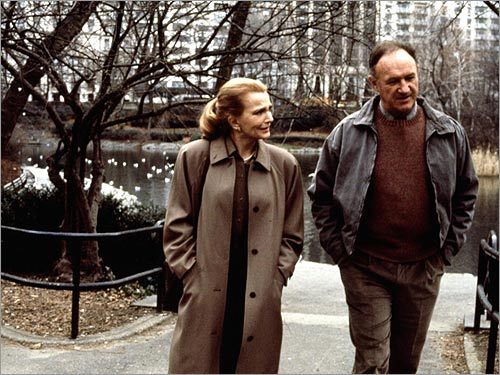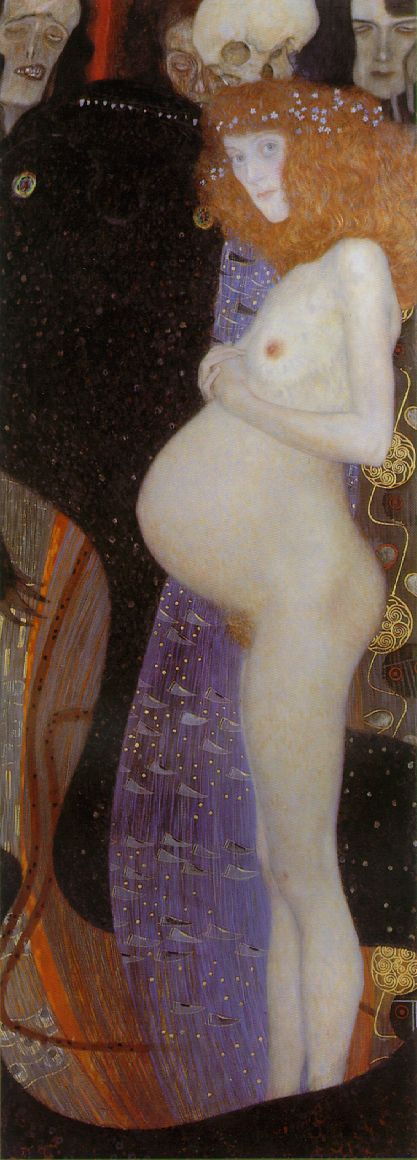 Imagine taking the best from a Bergman film and making it better. This is just what Woody Allen does in his masterpiece Another Woman, starring Gena Rowlands as Marion Post. Allen of course has never been shy when it came to his admiration for the great Swedish director, though this could not be more apparent than in the opening sequence of the film, which much resembles Bergman's 1955 classic, Wild Strawberries.
Imagine taking the best from a Bergman film and making it better. This is just what Woody Allen does in his masterpiece Another Woman, starring Gena Rowlands as Marion Post. Allen of course has never been shy when it came to his admiration for the great Swedish director, though this could not be more apparent than in the opening sequence of the film, which much resembles Bergman's 1955 classic, Wild Strawberries.Another Woman tells the story of a philosophy professor named Marion Post who has basically lived a "cold and cerebral life," and has not allowed herself to feel passion. She is married to a cold doctor (Ian Holm) who cheated on his previous wife with Marion. Likewise, it is the second marriage for Marion also, for earlier in the film we see that she married a much older man (her professor), who seemed to love her, although she refused to have a child with him.
 Another Woman dips into past and present, memory and forgetting, and it is quite possibly one of the greatest films about human loneliness ever made (with its only rival being Terrence Malick's masterpiece The Thin Red Line). The film begins with Marion taking a leave of absence from work so she can write a book, so she subleases a flat downtown, which happens to be next door to a therapist's office. Marion is able to clearly hear the patients, and it is through hearing their stories, that she begins to make connections within her own life.
Another Woman dips into past and present, memory and forgetting, and it is quite possibly one of the greatest films about human loneliness ever made (with its only rival being Terrence Malick's masterpiece The Thin Red Line). The film begins with Marion taking a leave of absence from work so she can write a book, so she subleases a flat downtown, which happens to be next door to a therapist's office. Marion is able to clearly hear the patients, and it is through hearing their stories, that she begins to make connections within her own life.Mia Farrow plays the pregnant Hope, who much resembles the Klimt painting with the same title. She is a regular patient to the therapist next door, and Marion takes an interest in her after overhearing Hope's therapy sessions.

Marion loses touch with her close friend Claire (Sandy Dennis) who later admits she withdrew from their friendship because of Marion's competitiveness with a man Claire admired. Likewise, Marion has distanced herself from her brother, though she does not realize this, as it is her brother who has distanced himself from her. As the film progresses, Marion begins to evaluate her life and she learns just how she's been judgmental and has stood above and evaluated others, thus causing them to want to pull away. And all this realization comes with Marion's turning 50.
The one man she feels true feelings for is Ken's friend Larry Lewis (Gene Hackman) but she pulls away from the warm and passionate Larry so she can instead marry the cold and cerebral Ken. Later on in the film, Larry makes himself present in one of her dreams, where she confesses to thinking about him "more than once in a while." He, in turn, tells her to do so only without regret. This scene ties in when Marion later meets Hope in a restaurant and Marion is speaking about her own regrets, including the abortion she had years ago, while she was still married to her first husband.

The cinematography is beautiful, as it is performed by the same cinematographer Bergman used, Sven Nyquist. The tones and colors all correspond with the mood of the film, and there is one particular scene where Marion is reading over the famous poem "Archaic Torso of Apollo" by the German poet Rainer Maria Rilke, which quotes the line, "You must change your life."
The film works in accordance to the poem, as Marion comes to not only recognize her personal loneliness, but also wishes to change it. Gena Rowlands gives an astounding performance as the cold, cerebral Marion, while also exuding a warmth at the same time (possibly that hidden passion she's not allowed to escape all these years).
 The film ends beautifully, while she is reading an excerpt that Larry Lewis has written about her in his new novel, and the scene is recreated, where Larry notes that he recognizes her passion, and that her passion is something that can in fact be, if only she allows it. Thus she asks the question if a memory is something you have or something you've lost.
The film ends beautifully, while she is reading an excerpt that Larry Lewis has written about her in his new novel, and the scene is recreated, where Larry notes that he recognizes her passion, and that her passion is something that can in fact be, if only she allows it. Thus she asks the question if a memory is something you have or something you've lost.Another Woman is one of the best films ever made. There are so many angles to explore in this film, that one just has to see it. There might be more Marion in you than you think.